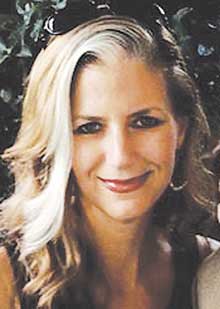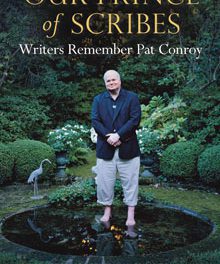 Harriet Tubman bumped Andrew Jackson to the back of the $20 bill. Beyoncé rocked the world by making “Lemonade” out of lemons. Prince shocked the world by leaving it. Ted Cruz partnered up with John Kasich, then Carly Fiorina. Donald Trump trumped them all. Hillary Clinton played the Woman Card. Millions felt the Bern. Some people canceled concerts. Other people boycotted Target. We all spent an unseemly measure of time discussing bathrooms.
Harriet Tubman bumped Andrew Jackson to the back of the $20 bill. Beyoncé rocked the world by making “Lemonade” out of lemons. Prince shocked the world by leaving it. Ted Cruz partnered up with John Kasich, then Carly Fiorina. Donald Trump trumped them all. Hillary Clinton played the Woman Card. Millions felt the Bern. Some people canceled concerts. Other people boycotted Target. We all spent an unseemly measure of time discussing bathrooms.
It was a newsy, noisy few weeks. Provocative. Contentious. Compelling.
And all I wanted to do was chase that pair of red-bellied woodpeckers I spotted down the street from my house, see that goshawk in the Cypress Wetlands again, savor the fragrance of blooming jasmine, and get a decent photo of that Giant Swallowtail butterfly in my backyard.
What is wrong with me, y’all? It’s a jungle out there – a columnist’s dream! – and all I want to do is walk in the woods.
About this nature fixation I’ve developed – to the exclusion of other interests that once held me entranced – I’ve been assuming it just was a “natural” progression, something everybody comes to with age. In time, it would settle down, or at least settle in.
This too shall pass, I thought.
But it’s not passing. It’s only getting worse. So I decided to do some research, just to confirm that I am, in fact, normal. I hoped to get some insight into the whys and wherefores of what I call My Nature Thing.
I started by Googling the simple question: “Why do old people love nature?” I figured there would be oodles of material on the topic.
There’s not. In fact, the question didn’t appear on Google at all. The question that did appear, at the very top of the page, was: “Why do old people love buffets?”
(I may address this riddle in a future column – apparently there’s quite a body of work on the subject – but for now I have an obsession to follow.)
Scrolling down the page, I did come upon a related query: “Why do old people love birds?” Ah. Now we were getting somewhere.
Or maybe not. The “forum” where I found myself was comprised of youthful snarkers. Their answers included: “Because they can’t do anything but sit or stand still and watch”; “Old men have finally found a hobby that their wives can enjoy with them, yet have to shut the [expletive] up for”; “Because their social security won’t let them afford to eat steak anymore”; and “It gives ‘em something to do before the Viagra kicks in.”
Just as I was beginning to despair (“These kids today…”) I came upon the following response:
“Old lady reporting in! Birds are an utterly different form of life all around us. They have no interest in us; we have interest in them. That alone commands respect. Birds are subtle. They have senses and capabilities we cannot begin to fathom. They survive and thrive through hardship, and with great vigor. It’s not that they are ‘cute.’ No, the furthest thing from it. Birds are brutally efficient. Age gives us the wisdom to appreciate birds on their terms, not ours. There is great, great mystery in the ways of birds. But it takes patience to observe and study them. Age gives us that patience, and the wisdom to realize . . . this is worth investing my patience in.”
This. This rang true.
The phrase “great mystery” grabbed me. As a lifelong lover of mystery, from Nancy Drew to Sherlock Holmes and beyond – I even started a neighborhood detective agency when I was 11 – I’ve belatedly discovered that the natural world has far more to offer, mystery-wise, than any novel by PD James or Agatha Christie. Clues are all around us, hiding in plain view, but we’re typically too busy – or just too blind – to see them. Once you open your eyes, though – once you start to notice – you can’t believe how they unfold and multiply. Just clue upon clue upon clue!
Clues to what, you ask? Well, to everything. To life itself. If you’re of a theological bent, you might even call them clues to God. At least that’s what I think. I don’t really know. I’m nowhere near solving the mystery. I doubt I ever will be. That’s the beauty of it. Unlike a great mystery novel – or even a book of scripture – nature never ends.
John Muir said, “the clearest way into the Universe is through a forest wilderness,” and I’m only beginning to understand what he meant. I adore the idea that I may never fully understand. It puts a spring in my step, a twinkle in my eye, and gives me reason to get up in the morning.
But back to the wise words of the “old lady” above: Nature is not cute. (Not hardly.) It’s brutally efficient. While deeply delightful and sublimely beautiful, nature is deadly serious . . . and sometimes just deadly.
I came upon a Facebook post the other day, written by a woman I don’t know. The friend of a friend of a friend, I think. The woman was distraught, describing the way her daughter’s pit bull – a pet she’d had for years – had suddenly snapped, and attacked her own pet dachshund the day before.
“My Mandy was 16 years old and on her way out,” the woman wrote. “But she did not deserve to die this way. He ripped her throat open, threw her down and broke her back. We had to have her put down to get her out of pain. I have cried all day long.”
Nature is not to be taken lightly.
I often walk the Cypress Wetlands Trail in the mornings, and people are forever warning me to “watch out for the gators.” And yes, there are alligators in that swampy water, and I “watch out” for them, even as I relish just “watching” them. But to be honest, I’m more skittish when I see a large dog coming toward me – without its human – in my own neighborhood. I live with a cat who thinks he’s a tiger, and I have the scars to prove it. We should never forget that even our pets are part of the natural world – i.e. “greatly mysterious” and “brutally efficient.” If we do, we are probably in for a rude reminder.
But maybe “rude” is the wrong word. My friend Donna is down in the Florida Keys. She and her husband do a lot of fishing there, and a lot of diving, too. She wrote to me, recently, about fish eating other fish, saying, “That is nature. When you dive, you see it. Fish of all types just swimming about doing their own thing and all of a sudden one will slurp up its neighbor. No problem. No conscience. Just part of life. And death. And beauty.”
Life and death and beauty. It sounds so simple, so reasonable, when you’re talking about fish.
If only politicians were piranha, maybe I could learn to see the beauty in this election season.
Oh, wait . . .
Margaret Evans is the editor of Lowcountry Weekly. Read more of her Rants & Raves or visit her blog at www.memargaret.com
Â






